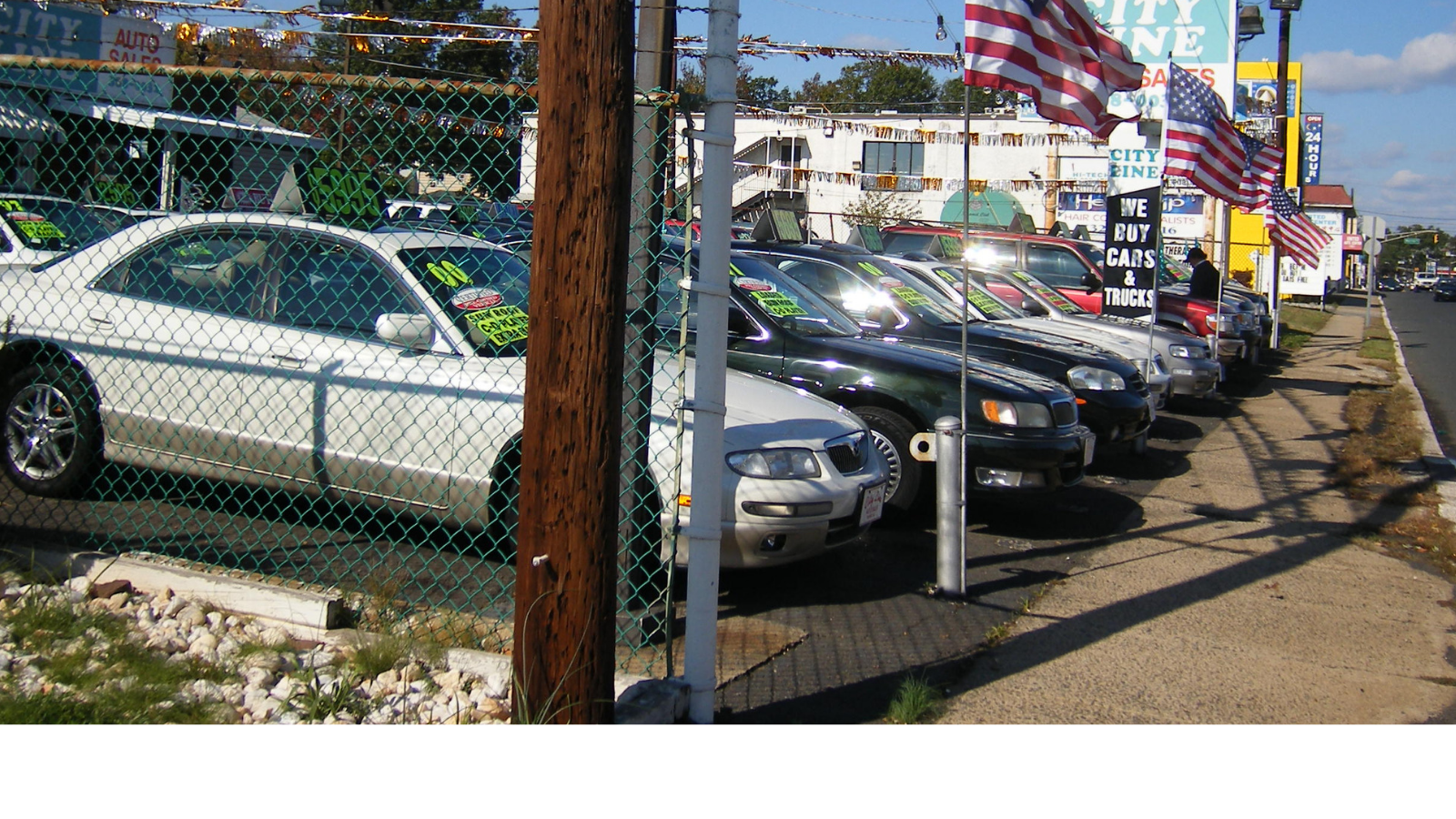Consumers shopping for a new car have plenty to worry about, from finding the right vehicle to negotiating a good price to managing their budget. However, some pitfalls, scams and traps can create new costs and headaches even for experienced shoppers. Here are some to look out for:
“Buy-Here, Pay-Here” Dealerships
What to look out for: Car dealerships that offer in-house financing, often advertised with signs like “buy-here, pay-here” or “no credit, no problem,” can be tempting for consumers worried about finding a loan. Often, however, these dealerships sell overpriced vehicles, offer expensive and often unaffordable loans, or use sneaky sales tactics.
Traditionally, auto loans come from a bank or credit union, even in cases where the financing is arranged by the car dealer. In the case of “buy-here, pay-here” dealerships, however, the dealership itself acts as the bank and finances the car loan. According to the Consumer Financial Protection Bureau (CFPB), traditional lending companies typically refrain from giving out loans for more than the value of a purchase, while “buy-here, pay-here” dealerships often do not set such limits.This creates “a bigger risk that you will borrow to pay more than the vehicle is worth.”
State and federal investigations have sometimes found “buy-here, pay-here” dealers breaking the law or gouging customers. Dealers have been found offering illegally high interest rates, operating without a license, pricing vehicles far above book value, and using unfair and harassing debt collection practices. Some “buy-here, pay-here” dealers also make use of “starter interrupt” devices designed to disable customer vehicles in the case of missed payments. At least one dealer was found using these devices illegally, without giving proper notice or providing adequate “right to cure” provisions.
What to do: Consumers with poor or no credit may think they have no choice but to purchase a car from a dealer advertising “no credit check” loans. Often this is not the case, and exploring options from traditional lending companies may result in a more affordable and safer loan. Making time to obtain preapproval from a traditional lending company before heading to the dealer can result in better terms and more bargaining power.
Yo-Yo Financing
What to look out for: Some dealers employ a deceptive tactic, often called “yo-yo” financing, designed to ramp up pressure on car buyers. According to the Federal Trade Commission (FTC), this tactic occurs when dealers “deceptively or unfairly induce consumers who have signed contracts and driven off the lots with the vehicles to sign new contracts and pay a higher interest rate, make an additional down payment, or agree to other terms that differ materially from the original terms to which the consumer agreed.”
This tactic typically begins when a customer is told by the dealer they have been approved for financing, signs every document presented by the dealer, and drives off the lot thinking the deal is done. Contrary to what the consumer was told, the dealer considers that it made a “spot delivery” of a vehicle before financing was finalized. For the dealer, despite what the consumer was told and what the contract might say, the dealer does not consider the financing finalized unless and until the dealer receives payment from the financial company to whom it wants to sell the credit contract. If the dealer’s sale of the credit contract to that financial company falls through for whatever reason, dealers then tell the consumer that some of the terms must change, or the car itself must change, or that no deal will be honored. According to the FTC, some dealers will never even attempt to sell the original credit contract. They will then tell the customer that financing has fallen through, and falsely claim that without agreeing to new terms the customer will lose his or her loan or down payment, or threaten to report the car as stolen and have the customer arrested.
What to do: The best way to avoid “yo-yo financing” is to buy less car to begin with, and if you absolutely must use credit, get pre-approved financing from a bank, credit union, or online lender. If that isn’t possible and you are going to consider credit from a dealer, always ask for a copy of the Truth in Lending Act Disclosures and leave the dealership with those disclosures so that you can read them carefully in a comfortable place. Before returning to the dealer, call and ask if the financing is approved and never sign any documents unless you are told it is, or you are told what the condition is and you agree to it. Then, read all documents you are asked to sign and do not sign any document that states the transaction is different than you were told. Always keep a copy of everything you sign. If a dealer does call to say something has fallen through after having already told you that everything was final, you should consult a lawyer. You can also demand proof in writing about what happened – this can expose dealers that failed to look for financing in the first place.
Trading in When You’re “Upside Down”
What to look out for: The term “upside down” refers to when you owe more on your vehicle than it is worth, meaning you have negative equity in your vehicle. For example: If you owe $15,000 for a vehicle, but the highest offer you’ve received for it is $5,000, then you have $10,000 in negative equity, and your loan is “upside down.” This can be a risky situation for any consumer because, in case of a cash emergency, selling the vehicle will not cover the cost of the auto loan. Yet many people find themselves “upside down” immediately upon purchase, particularly in the case of loans with a small down payment, and particularly because new vehicles lose about 20 percent of their value as soon as they are driven off the lot.
Consumers who are “upside down” should be particularly careful when trading in their vehicle to purchase a new one. This situation can make the new auto loan far more expensive because, in addition to financing your new vehicle, you will be borrowing additional money to finish paying off your trade-in. In 2017, almost one third of vehicles traded in were worth less than the loans that were financing them.
What to do: If you plan on trading in a vehicle with an existing loan, make sure you understand your complete financial picture. Calculate the equity (or negative equity) you have in your vehicle by subtracting the value of your vehicle from your current loan balance, estimating the value of your vehicle by finding similar vehicles for sale, or using an online vehicle value calculator.
If your car loan is “upside down,” try to avoid trading it in. Often, the best option is to keep your vehicle until the loan is paid off, or until you have equity. If that is not an option, selling the vehicle on your own will typically result in a better deal than trading it in at a dealership.
Overemphasizing Low Monthly Payments
What to look out for: When it comes to vehicle costs, monthly payments do not tell the full story. For consumers, particularly those with tight budgets, focusing on monthly payments can be tempting. However, loans with low monthly payments are often more expensive in the long run. Loans with low monthly payments also usually require making payments for a longer period of time – sometimes, so long that the car is still being paid off when the consumer is ready for an upgrade.
What to do: According to the Consumer Financial Protection Bureau, “the best way to compare auto loans is by using the total cost of the loan.” Make sure to add up all loan costs – including the amount of interest paid over the life of the loan – when making your decision. If the only way you can afford a vehicle is by paying it off for a longer period of time, consider whether a less expensive vehicle may be a better option.
Overpriced Add-Ons
What to look out for: When selling a vehicle, many dealers will attempt to convince customers to purchase expensive “add-ons”: vehicle options and accessories, typically offered by a dealer’s finance and insurance manager, that can quickly add thousands of dollars to the cost of a vehicle. Many addons are either unnecessary or can be found far cheaper when purchased elsewhere. According to Autotrader, add-ons that are often offered, but should almost always be avoided, include VIN etching, rust-proofing, fabric protection and extended warranties.
What to do: The easiest way to avoid add-on rip-offs is to just say no. Very few add-ons are worth the cost, and even add-ons with real value can typically be purchased elsewhere far cheaper. Some dealers sell vehicles with expensive add-ons pre-installed, increasing vehicle cost. To avoid these vehicles, call your dealer ahead of time and find out whether the vehicle you want has add-ons pre-installed, and how much they add to the vehicle price. If you cannot find the vehicle you want without add-ons, it may be worth shopping elsewhere.









